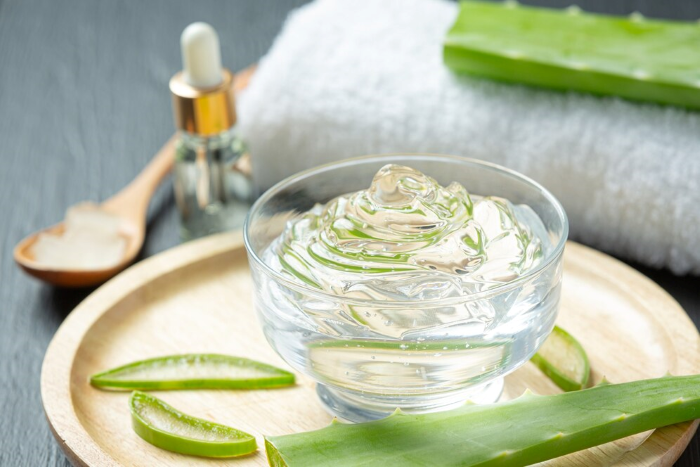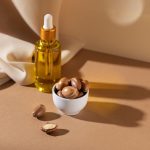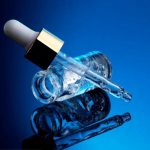Introduction to the Ingredient
Aloe Vera: The Green Goo Hyped to Heal Your Face (But Does It Really?)
Aloe Vera boasts a multitude of benefits for beauty:
- Hydration: Its gel-like substance is a natural humectant, drawing moisture into the skin and hair, leaving them well-hydrated and refreshed.
- Soothing: Aloe Vera possesses anti-inflammatory properties that effectively calm and relieve irritated or sunburned skin.
- Healing: It promotes the natural healing process of the skin, making it ideal for treating minor wounds, burns, and skin conditions.
- Anti-Aging: Rich in antioxidants, Aloe Vera can help combat the signs of aging by reducing the appearance of fine lines and wrinkles.
Usage in Beauty Products
Aloe Vera is a versatile ingredient found in various beauty products, including:
- Gels and Serums: Aloe Vera gels and serums are used to provide instant soothing and hydration to the skin.
- Sunscreens: It is a common component in sunscreens to alleviate sunburn and provide an extra layer of protection.
- Shampoos and Conditioners: Aloe Vera is used in hair care products to nourish and hydrate the hair and scalp.
- Facial Masks: They can be found in sheet masks and peel-off masks for their soothing and rejuvenating effects.
Safety and Precautions
Aloe Vera is generally safe for topical use and is well-tolerated by most individuals. However, some people may be sensitive or allergic to Aloe Vera. If you experience any adverse reactions, discontinue use and consult a dermatologist.
Compatibility with Other Ingredients
Aloe Vera is highly compatible with a wide range of skincare and haircare ingredients, including hyaluronic acid, vitamins, and botanical extracts. It can be seamlessly integrated into various beauty formulations.
Scientific and Research Findings
Numerous studies have highlighted the effectiveness of Aloe Vera in beauty and skincare:
- A study published in the “Journal of Ethnopharmacology” demonstrated that Aloe Vera extract exhibited anti-aging effects by improving skin elasticity and hydration.
- Research in the “Indian Journal of Dermatology” showcased the wound-healing properties of Aloe Vera, making it a valuable ingredient for addressing minor skin injuries.
Common Variants or Derivatives
Aloe Vera gel is the most common form of Aloe Vera used in beauty products. While other Aloe species exist, Aloe Vera is the most widely recognized for its skincare and haircare benefits.
References
- Surjushe, A., Vasani, R., & Saple, D. G. (2008). Aloe Vera: A short review. Indian Journal of Dermatology, 53(4), 163-166.
- Hashemi, S. A., Madani, S. A., & Abediankenari, S. (2015). The Review on Properties of Aloe Vera in Healing of Cutaneous Wounds. BioMed Research International, 2015.
Conclusion
Aloe Vera is a powerful beauty ingredient that offers a range of benefits from deep hydration and soothing to healing and anti-aging. Its compatibility with other skincare and haircare ingredients and its proven effectiveness makes it a popular choice in many beauty products. As always, it’s important to conduct a patch test when trying a new product containing Aloe Vera. Enjoy your beauty journey!
Frequently Asked Questions (FAQs)
- What is Aloe Vera and what does it do for your skin?
- Aloe Vera is a fleshy, cactus-like medicinal plant that’s best known for its soothing properties. It has other benefits like skin healing, hydration, and calming down breakouts and other types of irritation like sunburn.
- How does Aloe Vera work in skincare?
- Aloe Vera contains cholesterol, campesterol, β-sisosterol, and lupeol — all fatty acids that can help reduce the appearance of puffy skin. It can be applied directly to the skin like a mask.
- What are the key benefits of Aloe Vera in skincare?
- Aloe Vera gel can help hydrate and soothe dry, irritated skin, reduce inflammation and redness, fight acne and blemishes, and even has anti-aging properties.
So, where does that leave us in the great aloe vera debate? Is it a skincare savior or just another overhyped ingredient? The truth lies somewhere in between. Aloe vera can be a soothing addition to your skincare routine, providing temporary relief for sunburns and possibly calming down the occasional breakout. But let’s not get carried away and start worshiping at the altar of the aloe vera plant. It’s not going to perform miracles, folks.
In the end, if you enjoy the feel of aloe vera on your skin and it makes you feel like you’re doing something good for yourself, then by all means, slather away. Just don’t expect it to be the holy grail of skincare. And remember, there’s no substitute for good old-fashioned sunscreen and a healthy dose of skepticism.



